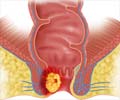
By decoding this genomic data and looking for deletions and mutations associated with cancer, the research team at The University of Texas MD Anderson Cancer Center believes this discovery could be translated into a test that helps physicians detect cancer and treat patients.
"At the present time, there is no single blood test that can screen for all cancer related DNA defects," Raghu Kalluri said. "In many cases, current protocols require a tumour sample to determine whether gene mutations and deletions exist and therefore determine whether the tumour itself is cancerous or benign."
"To procure tumour tissue, one needs to know that a tumour exists and if so, is it accessible for sample collection or removal? Finally, there are always risks and significant costs associated with surgical procedures to acquire tumour tissue," he said.
Kalluri added that because different forms of cancer are associated with different chromosomal mutations, they believe analysis of exosome DNA taken from blood samples may not only help determine the presence of a cancerous tumour somewhere in the body but also identify mutations without a need for tumour sample.
He said that they also believe this "fingerprint" will help lead them to the likely site of the tumour in the body. For instance, certain mutation spectrums would suggest pancreatic cancer or a brain-based tumour. While there is much more work to be conducted to develop such a test, having a tool such as this would increase our abilities to detect cancer in an earlier stage and therefore increase the chances of effective treatment.
Advertisement
Source-ANI













